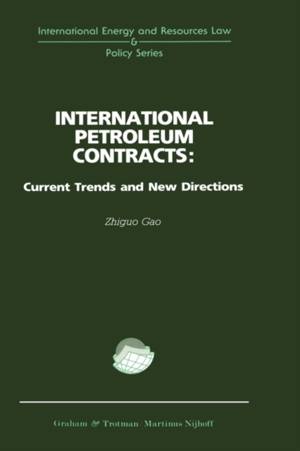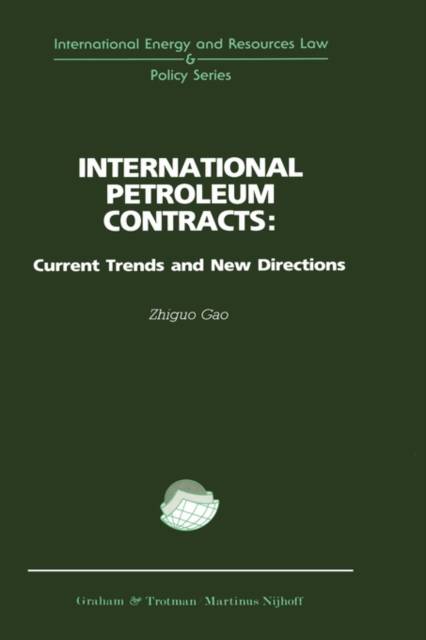
- Afhalen na 1 uur in een winkel met voorraad
- Gratis thuislevering in België vanaf € 30
- Ruim aanbod met 7 miljoen producten
- Afhalen na 1 uur in een winkel met voorraad
- Gratis thuislevering in België vanaf € 30
- Ruim aanbod met 7 miljoen producten
Zoeken
Omschrijving
This book analyzes the development policies behind the evolution of various arrangements for international petroleum exploitation. By studying examples of the principal categories of petroleum arrangements in four representative developing countries (Thailand, Indonesia, Brazil and China), this study examines in particular the issues of recent trends and new directions in contractual development and environmental sustainability that are reflected in both the structure and substance of the modern petroleum contracts that have emerged since the 1950s. Modern petroleum contracts are generally able to achieve a greater commerciality and mutuality of interests, but they have failed to produce a necessary balance between resources extraction and environmental sustainability. The future direction for petroleum agreements is that they must explicitly recognize the inherent interdependence of commercial viability and sustainable development.
Specificaties
Betrokkenen
- Auteur(s):
- Uitgeverij:
Inhoud
- Aantal bladzijden:
- 240
- Taal:
- Engels
- Reeks:
Eigenschappen
- Productcode (EAN):
- 9781859661031
- Verschijningsdatum:
- 21/11/1994
- Uitvoering:
- Hardcover
- Formaat:
- Genaaid
- Afmetingen:
- 156 mm x 234 mm
- Gewicht:
- 566 g

Alleen bij Standaard Boekhandel
+ 878 punten op je klantenkaart van Standaard Boekhandel
Beoordelingen
We publiceren alleen reviews die voldoen aan de voorwaarden voor reviews. Bekijk onze voorwaarden voor reviews.











